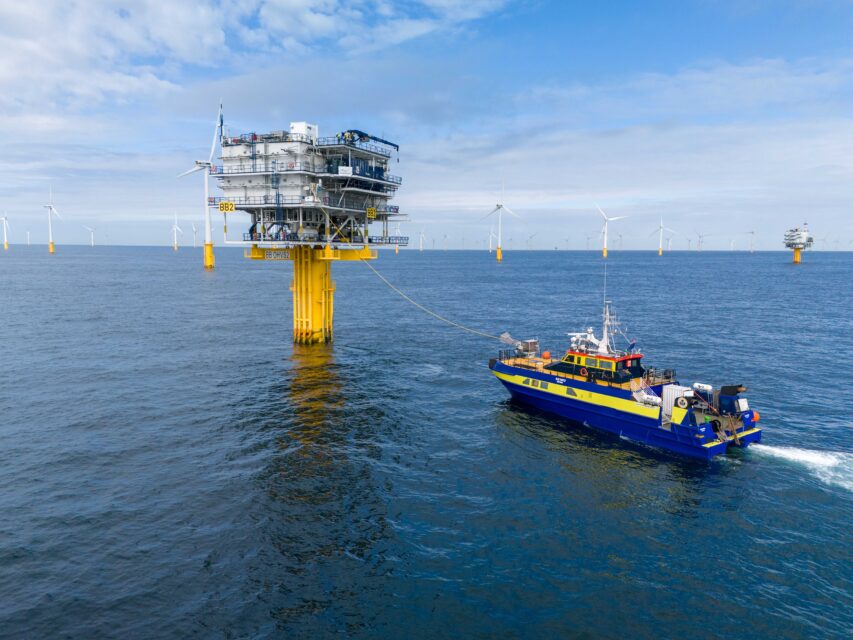General – Boat Charging System
Parkwind has installed a pioneering boat charging station system at sea, designed to minimize greenhouse gas emissions from maintenance vessels and promote sustainable operations.

The technology, developed by UK-based partner MJR Power & Automation, and integrated and deployed in collaboration with Parkwind, is installed at Parkwind’s Noblewind offshore wind farm in the Belgian North Sea.
The boat charging station system at sea has been designed to minimize greenhouse gas emissions from maintenance vessels and promote sustainable operations.
This system, operational for the first time at the Nobelwind wind farm, enables vessels to use green, locally generated energy directly by connecting to the charging cable while staying in place during charging, despite sea currents.
The installation of this innovative boat charging station is a crucial step in Parkwind’s commitment to minimizing greenhouse gas emissions from maintenance vessels and fostering sustainable maritime practices.
The charging system was transported from the quayside to the offshore substation via CTV and lifted in modules using the substation crane.
Within two days, it was assembled, hooked up, and commissioned on the substation. The setup was then tested, achieving a world first by safely transferring power to a CTV from a fully operational and producing offshore wind farm.
Moreover, this process caused no disruption or interruption to the wind farm’s operation, and there was no failure or damage to any component of either the charging system, nor topside, nor vessel, according to Parkwind.
Working in close partnership with Parkwind, MJR carried out all electrical and mechanical interface engineering to install the system on the substation.
Parkwind provided offshore logistics, offshore installation, testing support and the electrical power interface.
The system is designed for both CTV charging up to 2 MW and SOV charging up to 8 MW and can also be used for supplying offshore power to other conventional offshore vessels on standby, reducing their emissions from diesel generators.
Nobelwind, which is located 47 km from shore in the Belgian North Sea, is Parkwind’s third offshore wind energy project with 50 turbines installed over 19.8 km2 that powers approximately 190,000 households.
“We are committed to making all of our activities as sustainable as possible and this is a game changer for our maintenance vessels, which can now access green energy direct from our wind turbines as they carry out their work. The trial proved the system can transfer electricity from a wind farm to the vessels safely without any disruption to the farm,” said Kristof Verlinden, Head of O&M at Parkwind.
